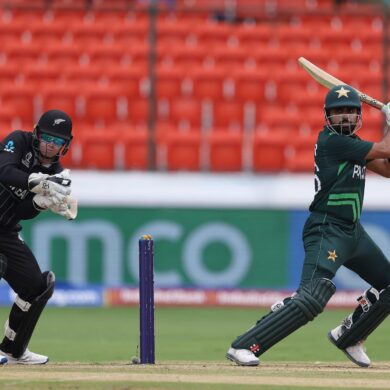Interior Minister Rana Sanaullah announced on Friday that 33 suspects involved in attacks on army installations during violent protests on May 9 have been handed over to the military.
The suspects include 19 individuals from Punjab and 14 from Khyber Pakhtunkhwa, the minister said while addressing a news conference here.
The minister clarified that out of the 499 registered FIRs (First Information Reports), only six cases were being considered for trial in military courts, with two in Punjab and four in Khyber Pakhtunkhwa.
Sanaullah expressed concern that despite the limited number of cases being tried in military courts, an impression was being created that all the suspects were being tried in such courts.
The protests erupted following the arrest of PTI Chairman Imran Khan on May 9, and social media platforms were flooded with videos depicting rioting and vandalism at various locations, including the Lahore Corps Commander House and the General Headquarters in Rawalpindi.
The military characterized the events of May 9 as a “dark chapter” and announced its intention to prosecute the rioters under relevant laws, including the Pakistan Army Act and Official Secrets Act. The decision was supported by the National Security Committee, despite opposition from rights organizations and activists.
The PTI has filed a petition with the Supreme Court challenging the federal government’s decision to try civilians under the Army Act.
Prime Minister Shehbaz Sharif clarified that individuals accused of vandalizing civilian infrastructure would be prosecuted under anti-terrorism laws, while those accused of damaging military property would face trial under military laws.
In a recent development, an anti-terrorism court in Lahore directed the superintendent of the city’s Camp Jail to transfer 16 suspects arrested for the vandalism at Lahore Corps Commander’s House to a military commanding officer.
During the press conference, Interior Minister Sanaullah stated that the military authorities would investigate the case but would not take “cognizance” of it. They would determine the applicability of the Army Act or the Official Secrets Act. He further revealed that 88 out of the 499 FIRs had been registered under the Anti-Terrorism Act, while the remaining 411 were filed for charges such as vandalism, arson, or interfering in state matters.
Regarding arrests, the minister informed that nearly 4,000 people had been apprehended in connection with the cases registered under terrorism charges. Out of these, 2,588 were in Punjab, and around 1,100 were in Khyber Pakhtunkhwa. Additionally, 5,536 individuals were arrested in cases registered under other laws, with approximately 80% of them being released on bail.
Sanaullah emphasized that military laws applied to individuals who trespassed on defense-related buildings or their parts. He criticized the actions of protesters who entered prohibited areas, took photos, and disseminated them, questioning the validity of such acts under the guise of a civilian protest or human rights.
He also highlighted that Prime Minister Shehbaz had assured the public that innocent individuals would not be unjustly punished.



